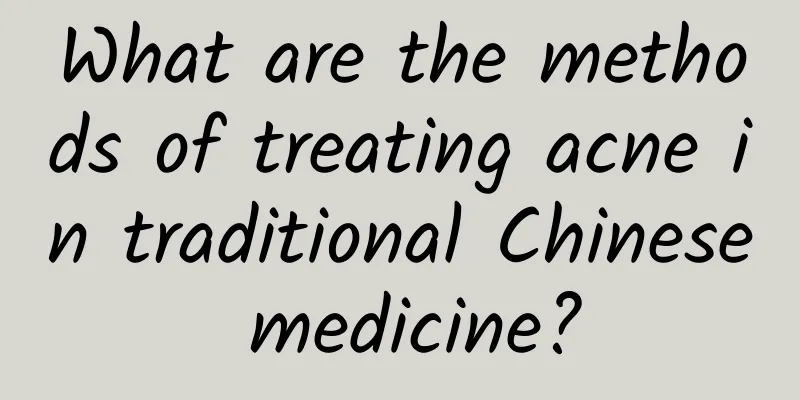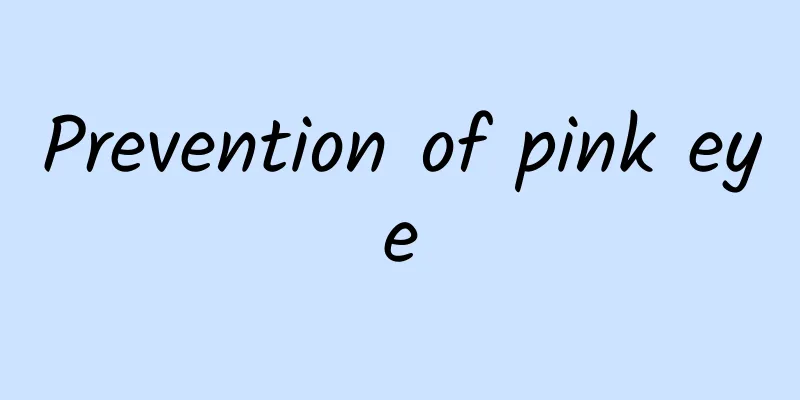What are the symptoms of acne vulgaris?

|
In modern life, many people attach great importance to their facial image, because a good image has many benefits in life. However, some people are very troubled by acne vulgaris, because this disease not only affects their own image, but also has some psychological effects on patients. So, what are the symptoms of acne vulgaris? First, what are the symptoms of acne vulgaris? Acne is a chronic inflammatory skin disease of the pilosebaceous unit, which mainly occurs in adolescents and has a great impact on their psychological and social development, but it often subsides or heals naturally after puberty. The clinical manifestations are characterized by polymorphic skin lesions such as acne, papules, pustules, nodules, etc. that are prone to occur on the face. Skin lesions often occur on the face and upper chest and back. Non-inflammatory lesions of acne appear as open and closed comedones. The typical skin lesions of closed comedones (also known as whiteheads) are skin-colored papules about 1 mm in size with no obvious hair follicle openings. Open comedones (also known as blackheads) appear as dome-shaped papules with significantly dilated follicular openings. Acne will further develop into various inflammatory skin lesions, manifesting as inflammatory papules, pustules, nodules and cysts. Inflammatory papules are red, with a diameter ranging from 1 to 5 mm; pustules are uniform in size and filled with white pus; nodules are larger than 5 mm in diameter, feel hard and painful to the touch; cysts are located deeper and are filled with a mixture of pus and blood. These lesions may also fuse to form large inflammatory plaques and sinus tracts. After the inflammatory skin lesions subside, pigmentation, persistent erythema, and depressed or hypertrophic scars are often left behind. Clinically, acne is divided into 3 or 4 grades according to the nature and severity of acne lesions: Grade 1 (mild): only comedones; Grade 2 (moderate): in addition to comedones, there are also some inflammatory papules; Grade 3 (moderate): in addition to comedones, there are also more inflammatory papules or pustules; Grade 4 (severe): in addition to comedones, inflammatory papules and pustules, there are also nodules, cysts or scars. Second, the occurrence of acne is closely related to factors such as excessive sebum secretion, blockage of the sebaceous gland ducts of the hair follicles, bacterial infection and inflammatory response. After entering puberty, the level of androgens, especially testosterone, in the human body increases rapidly, promoting the development of sebaceous glands and producing a large amount of sebum. At the same time, abnormal keratinization of the sebaceous gland ducts of the hair follicles causes blockage of the ducts, hindering the excretion of sebum and forming keratin plugs, also known as micro-acne. Various microorganisms, especially Propionibacterium acnes, multiply in large numbers in the hair follicles. The lipase produced by Propionibacterium acnes breaks down sebum to produce free fatty acids, while also attracting inflammatory cells and mediators, ultimately inducing and aggravating the inflammatory response. What are the symptoms of acne vulgaris? Wash your face with warm water once or twice a day to clean your skin. Avoid squeezing or scratching the lesions with your hands. Avoid using oily and powdery cosmetics and ointments and creams containing glucocorticoids. 2. Common methods for treating acne (1) Topical medications: Retinoic acid (retinoic acid cream, adapalene gel, tazarotene gel), benzoyl peroxide, antibiotics (clindamycin, erythromycin, chloramphenicol, etc.), azelaic acid, sulfur lotion, etc. (2) The first choice of oral antibiotics is tetracycline (minocycline, doxycycline, etc.), followed by macrolides (erythromycin). Avoid antibiotics commonly used to treat systemic infections such as levofloxacin. The course of antibiotics is usually 6 to 12 weeks. (3) Oral isotretinoin For severe acne, oral isotretinoin is the standard treatment and currently the most effective method for treating acne. The treatment course aims to achieve a minimum cumulative dose of 60 mg/kg. (4) Anti-androgen therapy, such as the oral contraceptive cyproterone acetate combined tablets, is suitable for female patients with moderate to severe acne accompanied by symptoms of excessive androgen levels (such as hirsutism, seborrhea, etc.) or polycystic ovary syndrome. Female patients with delayed-onset acne and acne that is significantly aggravated before menstruation may also consider using oral contraceptives. (5) Oral glucocorticoids are mainly used for fulminant or aggregated acne, following the principle of short-term, low-dose, and combined with other methods. (6) For patients who cannot tolerate or are unwilling to receive drug treatment, physical therapy such as photodynamic therapy (PDT), fruit acid therapy, laser therapy, etc. can also be considered. 3. Graded treatment of acne (1) Grade 1 is generally treated topically, with topical retinoic acid preparations being the first choice. (2) Level 2: Combined use of topical retinoids and benzoyl peroxide or antibiotics, and oral antibiotics if necessary. (3) Grade 3 often requires combined treatment, with oral antibiotics combined with topical benzoyl peroxide and/or retinoic acid drugs as the first choice. Antiandrogen therapy may also be considered for female patients where indicated. |
<<: What are the symptoms of heart disease?
>>: Does Roxithromycin treat acne?
Recommend
The reason why the baby's upper and lower teeth are not aligned
When the baby's upper and lower teeth are not...
Find this "point" on your body and you won't have to worry about kidney deficiency in your life
Kidneys are the foundation of our constitution. H...
How to take care of fat particles after picking them
If you use a needle to pick out fat particles, yo...
Why does a mole hurt?
Black moles may be really common in our lives. Pi...
How long does it take to treat asthenospermia?
Asthenospermia refers to the poor quality of male...
TCM Diagnosis of Uremia
Many Chinese medicine practitioners choose to use...
What herbal medicine is good for washing the body?
Sometimes our skin feels very itchy. In most case...
Three ways to keep your parents’ legs from getting cold! There is a cure for chronic cold legs
It's winter now, and many people are starting...
The dangers of gout
Gout is a disease of human beings, and the incide...
What are the symptoms of turbid air in the body?
In life, there are also many people who do not un...
Is vocal cord polyp surgery dangerous?
Many people think that vocal cord surgery is dang...
What to do if you have a cold or fever
Colds are very common diseases. This type of dise...
What causes bad breath? What can I eat to regulate my body?
Bad breath is a problem that bothers many people....
Causes of lower limb edema in the elderly
The elderly will have many diseases because their...
Effects and functions of chrysanthemum notoginseng
Chrysanthemum notoginseng, also known as Tu Panax...









